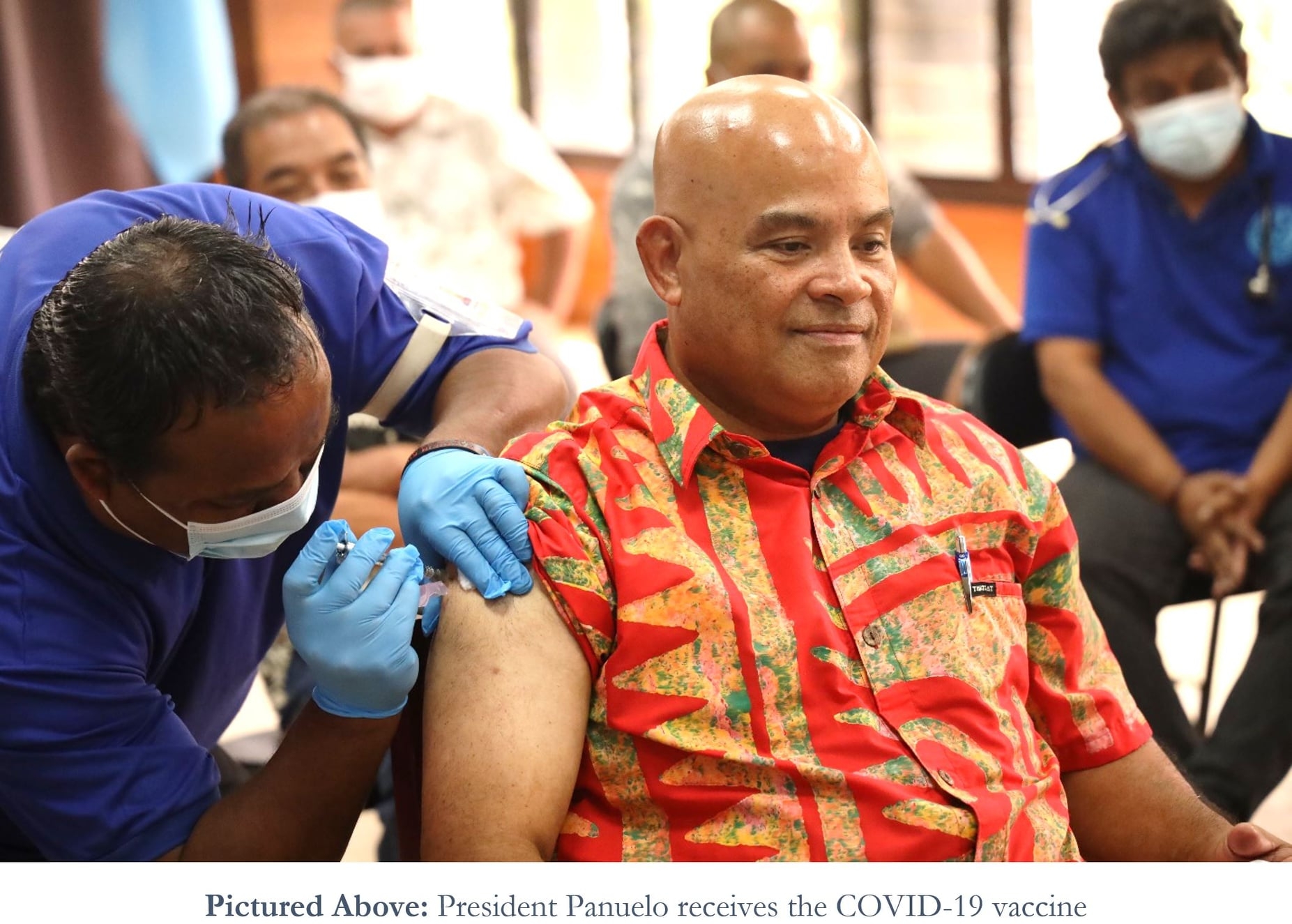After an incredibly challenging 2020, what will this year bring? We take a look at the economic and political prognosis and a few key sectors.
Vaccinating for recovery
Timely vaccination campaigns will be key to the recovery of Pacific island economies. The Pacific Community says a handful of Pacific Islands have still recorded no cases of COVID-19 at all (at the time of going to print)—Cook Islands, Kiribati, American Samoa, Niue, Nauru, Tuvalu, Tonga, Tokelau and Palau. Others such as the Federated States of Micronesia, have only recorded cases at the border from returning citizens, while most other island nations have recorded no cases of community transmission for months. Those with more open borders—Guam, French Polynesia and Papua New Guinea—have ongoing community transmission.
The economic outlook
As a region, Pacific Island GDP growth was forecast to shrink to 0.5% in 2020, the lowest rate since 1967 according to the World Bank. While most are predicted to grow by small margins in 2021, the World Bank has outlined a number of risks to these projections. “The pandemic could last longer than expected, the long term damage from last year’s recessions could be deeper than anticipated, balance sheet stress could intensify, or the contraction in global trade could be sharper or longer lasting than envisioned. More countries in the region could experience difficulties with procurement and distribution of the vaccine than currently anticipated,” it writes in its Global Economic Prospects report for this year.
Other sectors
The continued reliance on tourism in many Pacific Island countries and uncertainty over the opening of borders and appetite for travel is one of key risks to economic recovery (see page 16).
For the island region’s largest economy, Papua New Guinea, growth will depend on a strong resources sector, including new investments. There’s some optimism around the construction boom being driven by additional investment into the resource sector and its potential to generate jobs.
“The implementation of new resource projects (Papua Liquified Natural Gas (LNG) and Wafi-Golpu) combined with professional, administrative, and support services needed alongside these projects, could generate formal jobs. There are downside risks, however, such as ongoing disputes over the Porgera mine which could weaken investor confidence,” the World Bank has written.
Work in 2021
In its December 2020 report on COVID-19’s macroeconomic impacts and job prospects, the World Bank said that redeploying workers from hard-hit sectors like tourism to alternative occupations that draw on similar skillsets should be prioritised, and could be supported through re-training.
Globally there has been much hope placed in the digitalisation of work but how does this translate to the Pacific Islands? “Low numbers of ICT job vacancies indicate potential obstacles to the digitalisation of work seen in other regions. Mismatches between demand and supply of skilled labour, which have been exacerbated by the impacts of COVID-19 on labour demand, point to the continued importance of investment in skills development,” the World Bank states.
Political outlook
For Marshall Islands, the Federated States of Micronesia and Palau, critical negotiations over the Compacts of Free Associations with the United States will continue this year. Under each compact, the island nations receive development assistance and visa-free access for its citizens to the United States, and the US in return has a strategic monopoly on the Micronesian states. The compacts also allow the US to test missiles at Kwajalein atoll in Marshall Islands. Palau guarantees the United States the use of certain defence sites in the future under its compact agreement.
Telecommunications tussles
The geopolitical tussle for influence continues to play out in the region’s telecommunications sector.
Digicel has indicated it may sell its Pacific operations in Fiji, Samoa, Vanuatu, Nauru and Tonga after a difficult 2020, and says it has been approached by a number of buyers. The company was carrying approximate US$6.7 billion in debt at the end of last year. Digicel won’t confirm if those buyers include Chinese telcos, but it is a prospect that has created concerns in Washington and Canberra. This follows nervousness around reports that Huawei Marine has bid for the Kiribati Connectivity Project, a submarine Internet cable that would connect Kiribati, the Federated States of Micronesia and Nauru to the HANTRU-1 undersea cable which lands in Guam, home to important US military assets.
Climate negotiations
Many Pacific leaders spent 2020 working to push messages on climate change, even as the world’s attention was swallowed by the pandemic, Brexit and America’s political difficulties.
The damage wrought by Tropical Cyclone Harold in Vanuatu and TC Yasa in Fiji last year highlight the continued urgency of this message.
“This is not normal. This is a climate emergency,” Fiji Prime Minister Voreqe Bainimarama said in the wake of TC Yasa.
For the full feature, login to your account or subscribe today.
